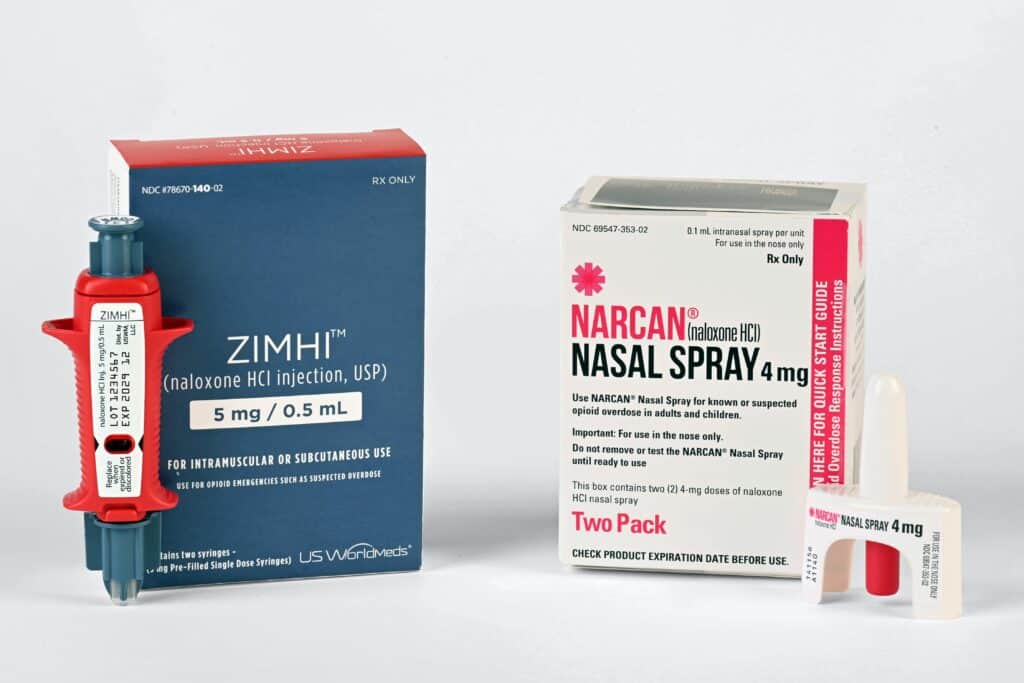Relapse is not the end of the road in recovery; it’s merely a speed bump.
Relapse. When you hear that word, what do you think? Failure, giving up, no way out? Most would agree that this word has a negative meaning, but it doesn’t have to be that way. It can mean a chance to make things right.
Relapse is an opportunity to realize what is most important to you. Understanding why you relapsed is the first step you should take, and from there, you can learn how to continue with the life you wish for in recovery.
Recognizing substance use disorder as a chronic illness means understanding that relapse is part of the recovery process. Although no one wants to relapse, accepting that it may happen is important, and one shouldn’t treat it as an event that erases all the hard work done to manage the disease.

What is Relapse?
When you want to get rid of your addiction, you do everything in your power to achieve that goal. Sometimes, though, there are setbacks that interfere with that goal, leading you to go back to bad habits. These setbacks could be triggers like a social setting or a fight with a family member or friend.
A relapse trigger can be anything that channels your past or present, especially if you’ve faced adversity and trauma. It can be a scent, a sight, or even a sound. Everyone’s triggers are different, which is why it’s essential to make note of your reactions to certain stimuli that can set you off.
Trigger relapse is also partially due to chemical changes in your brain from continued substance use. When you use substances regularly, you flood the brain’s reward system with the chemical messenger dopamine. This overstimulation of the reward circuit causes the intensely pleasurable “high” that leads people to take substances again and again.
After prolonged substance misuse, the cravings for more of the substance become unmanageable. You feel compelled to give in to what your body wants. For most, this seems like the end of the road, and they cannot live their life without being dependent on substances.
Risks of Relapse in Recovery
It’s vital to understand that relapse can be potentially life-threatening for individuals using opioids in recovery who have strayed from their treatment. Many people who relapse after abstaining for long periods of time accidentally overdose because their tolerance has weakened over time.
With highly potent drugs like fentanyl circulating, even the smallest dose can be deadly. This holds true for seasoned opioid users who have been in recovery for some time. Thankfully, the risk of fatal relapse overdose can be avoided with the help of medications like Suboxone, which contains naloxone, an overdose reversal component. The only way to access this medication is by enrolling in medication-assisted treatment. This is available through an outpatient center that specializes in opioid addiction.
It’s also a good idea for those in recovery to always have access to Narcan. This is crucial in case they feel they may have ingested a dose that is too high. However, this isn’t always a feasible solution if you’re alone, which makes relapse prevention and proper medication all the more valuable.
If you do keep Narcan on your person in case of relapse, it’s a wise precaution. Consider informing your friends and family that you have it on hand in case of emergencies. It’s also important that they’re educated on Narcan protocol. They must contact an ambulance immediately upon dispersing the medication.

How to Avoid Relapse: Relapse Prevention
Relapse prevention is one of the main focuses of recovery as you begin the addiction treatment process. Identifying triggers can take some hard work and mental strength, but with the help of medication-assisted treatment, things become more manageable.
Effective, FDA-approved medications like buprenorphine help reduce withdrawal symptoms from opioids, allowing you to think more clearly and concentrate on getting better. The addition of substance use counseling makes it easier to discuss and figure out your triggers. This occurs in a safe space with someone who understands the nature of addiction.
Substance use counseling involves both individual and group sessions that allow for moderated and productive discussion. Many in recovery find this resource invaluable to their progress. They’re able to meet and talk with like-minded peers who are also looking to address their deeper issues with substance use.
Avoiding relapse will ultimately always be your responsibility. However, having specialized professionals on your side equips you with healthier coping mechanisms to get you through difficult times.

Long-Term Recovery Strategies at AppleGate Recovery
Addiction is a disease, and unfortunately, relapse can happen at any point in a person’s life. However, there are different types of treatment out there that can treat opioid use disorder. One form of treatment that has a low risk of relapse is buprenorphine. It can be used short or long-term and diminishes the physical dependency on opioids.
Like with any chronic condition, every person is different, so it is important to choose a treatment that works best for you. Pick a treatment that will work for life, not for a quick fix. If you feel like buprenorphine treatment is right for you, AppleGate Recovery is here to help.
From the intake process to finding the proper dosage, our dedicated staff and counselors will be there every step of the way. We know that, along with treatment, a support system is needed, and that is why we make it our mission to help you live the life you wish for, free from opioids.

Contact AppleGate Recovery Today
If opioid addiction is impacting your life or the life of someone you care about, reach out to our treatment center. We are here to provide the support and care you need to take the first step toward recovery.
Call 888.488.5337
